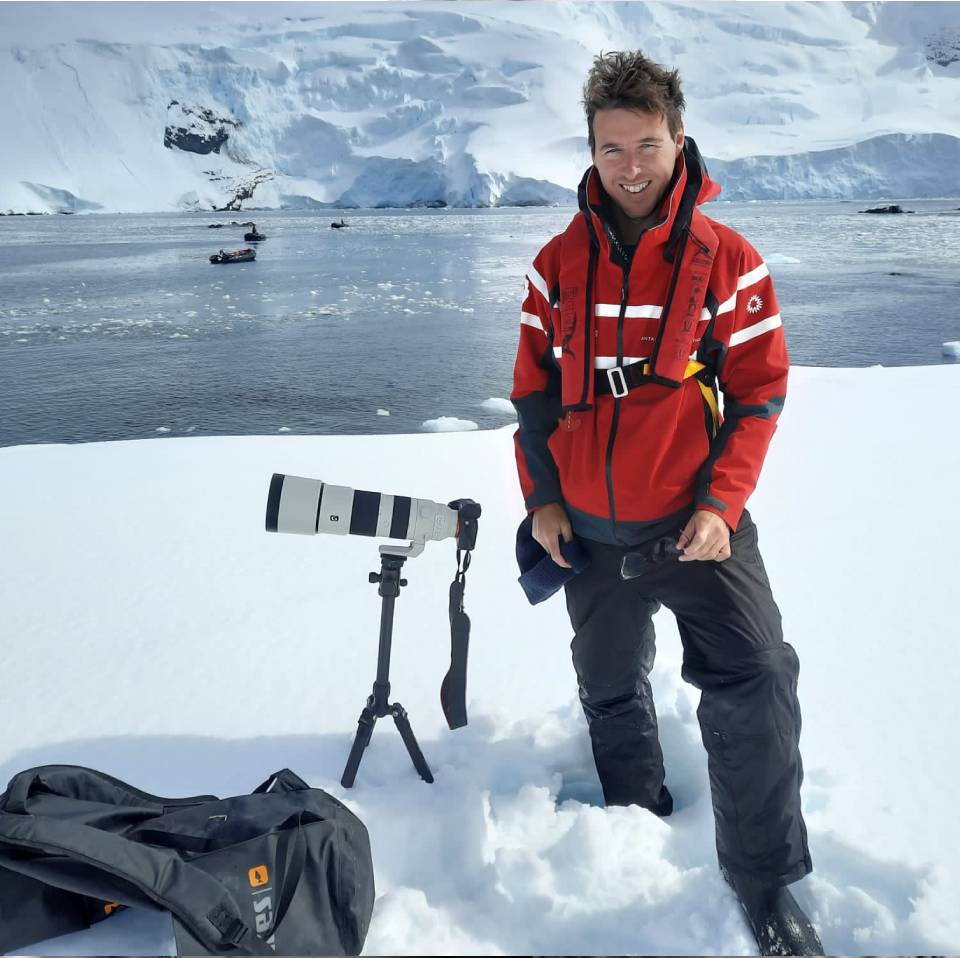Interview with an expert - Andy Rouse
For this months ‘Interview with an expert’ we’re very excited to be talking to one of the best wildlife photographers on the planet – Andy Rouse.
Andy’s photos are almost legendary among the wildlife photography community. His strong ethics, patience and natural ability has earned Andy the respect of some of the most influential companies out there including National Geographic, Canon, Lonely Planet and the BBC.
Andy is an expert on Antarctica photography, having travelled to the White Continent on several occasions. He’s also written 12 books and presented his own T.V series!
This year Andy is returning to Antarctica for a photography focused cruise run by Natural World Safaris. For the full itinerary, please click here.
Despite his hectic schedule, Andy was gracious enough to answer a few of our questions to help inspire and instruct our readers in the difficult art of wildlife photography.
Q1: What first inspired you to take up wildlife photography?
Ah that’s easy a love of animals. I’ve always loved animals my whole life so spending my life photographing them was a natural progression.
Q2: If we opened up your kit bag what would we find?
Hmm well that depends on the trip. Of course I have the big uber expensive long 500 and 600mm lenses. They are great for animals that are shy. But often these days my goto lens is the new Canon 100-400 as its great quality and light to carry. At the other end of the scale I’ve got a fisheye lens that bends and warps everything, which can give funky effects. Being a Canon Explorer I’m obviously packed out with Canon kit and I love it as it always delivers.
Q3: How important is knowing the behaviour of the wildlife you’re photographing?
100% the most important thing, much more than kit. I call it field craft and it’s something I’ve always known and been good at. Many of the species I work with have much better senses than ours, like hates and deer, so I need to use sneaky field craft to get close to them. It’s useful for all animals really as understanding their body language helps you gauge their mood and intent, and if you are stressing them by being too close.
Q4: Do you have an image in your head of the shot you want to achieve? Or do you simply watch and wait for the perfect shot to present itself?
The latter. I prefer to be reactive, as its rare in wildlife that everything comes together perfectly. It means shots can’t really be planned. Being reactive keeps my photo mind sharp and ensures I don’t miss an opportunity that presents itself.
Q5: I hear you’re returning to Antarctica in 2017, can you tell us a little about that trip?
Yep, I’m doing a partnership with award winning tour operator Natural world safaris. We will be taking the stabilised M/S Ioffe on a 12 night Antarctica cruise with the emphasis on photography. There will be full training on board for all levels and mentoring throughout the voyage from myself and my team. We’re going too at the best time of year for photography when everything is pristine and white. I’m so excited about it!!
Q6: Is the cold weather of Antarctica difficult to shoot in?
Not with preparation no. Batteries are the most likely to fail but keeping spare sets inside warm clothing is the way forward. The biggest challenge to anyone’s photography is how the cold affects them, if you are cold yourself then you are not relaxed enough for photography.
Q7: What 3 tips would you give to newcomers in Antarctica looking to capture the stunning wildlife and landscapes?
1. Take a wider view of Antarctica than you might normally. It’s a stunning place and is best shot with a wide angle lens to show the animal in the context of where it lives.
2. It’s easy to take thousands of images in such s beautiful place. Unfortunately most will only look good in the heat of the moment. I always tell people don’t press the shutter and take the image unless you’d put it on your wall. It’s a simple rule and will pay dividends.
3. Get familiar with your camera before the trip as cold fingers won’t be able to use unfamiliar buttons. Practise your compositions locally, get to know every button on your camera by touch alone. It will make a great difference!

FAQ
We hope you have enjoyed this interview with wildlife photographer Andy Rouse! If you have any questions or would like to know more about Andy, then please visit his website – http://www.andyrouse.co.uk. If you would like to join Andy on his next Antarctic adventure then please contact Natural World Safaris. Please stop by again next month when we talk to another leading expert!
Thank you,
Antarctica Guide Team



